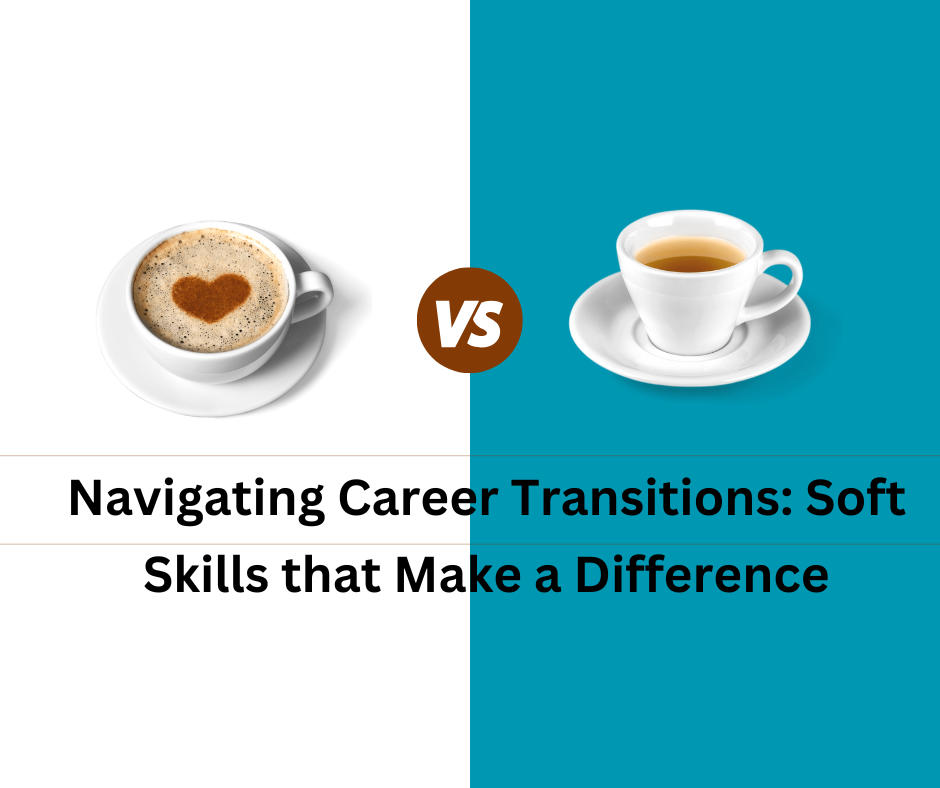Career transitions can be both exhilarating and daunting. Whether you’re changing industries, seeking a promotion, or stepping into a leadership role, each shift demands a unique set of skills. While technical expertise is vital, it’s often the soft skills that determine your long-term success. These skills—rooted in how we interact, communicate, and solve problems—are essential in helping professionals adapt, thrive, and grow in new environments.
Why Soft Skills Are Key to Career Transitions
In today’s quickly evolving job marketplace, possessing soft skills is more significant than always. According to numerous studies, employers prioritize candidates with strong interpersonal and problem-solving abilities. Hard skills, such as proficiency in software or technical processes, can often be learned on the job, but soft skills require time to develop and are harder to teach.
Navigating a career transition isn’t just about landing the new job—it’s about ensuring that you flourish once you’re in that role. This is where soft skills like adaptability, communication, and emotional intelligence truly make a difference.
Adaptability: Embracing Change with Confidence
One of the most critical soft skills during a career transition is adaptability. Every job shift, whether within the same company or into a new industry, brings changes in workflow, culture, and expectations. Adaptability allows professionals to remain open-minded, flexible, and ready to tackle these changes with enthusiasm rather than resistance.
Being adaptable also means being proactive in learning new things and embracing unfamiliar challenges. Employers value candidates who can adjust to new environments quickly, and adaptability is a significant predictor of success in any role.
For example, when switching from a technical role to a managerial position, adaptability will allow you to thrive in a leadership environment that requires a completely different set of responsibilities and challenges.
Emotional Intelligence: Understanding and Managing Emotions
Emotional intelligence (EQ) is the ability to recognize, understand, and manage your own emotions while also being aware of others’ feelings. In a career transition, emotions can run high—excitement, anxiety, and self-doubt are all natural responses to change. However, professionals with strong emotional intelligence can navigate these emotions effectively, ensuring they remain calm and focused.
Moreover, EQ is critical when establishing new relationships in a new role. Whether managing a team or collaborating with new colleagues, emotional intelligence allows you to build trust, foster communication, and navigate conflicts with grace. It’s not just about managing your own emotions but also being empathetic to those around you.
Communication: The Art of Clear and Persuasive Dialogue
Effective communication is an indispensable soft skill, especially when transitioning between careers. Whether you’re negotiating a new position, presenting ideas to a new team, or collaborating across departments, clear and concise communication ensures that your message is understood.
Moreover, career transitions often require re-establishing your professional brand in a new environment. Strong communication skills will help you articulate your vision, demonstrate your value, and establish credibility with new colleagues and superiors.
Written communication, especially in the digital age, plays an equally important role. Crafting clear emails, reports, and presentations ensures that your contributions are recognized and valued. When making a career transition, learning to adapt your communication style to suit new colleagues, bosses, or even clients can make the difference between success and failure.
Problem-Solving: Tackling New Challenges with Creativity
Every career transition comes with its fair share of challenges—whether it’s learning new systems, understanding a different organizational culture, or tackling unfamiliar tasks. Strong problem-solving skills enable you to confront these hurdles with confidence.
This soft skill involves more than just finding solutions; it’s about approaching problems with a strategic, analytical mindset. During a career shift, you might encounter situations that require out-of-the-box thinking, especially if you’re moving into a new industry or role.
For instance, if you’re transitioning from a technical role to a management position, you may be faced with team dynamics or leadership challenges you’ve never experienced before. The ability to assess the situation, think creatively, and devise effective solutions is key to thriving in your new role.
Resilience: Bouncing Back from Setbacks
Career transitions are rarely without their bumps in the road. Rejections, unexpected challenges, or difficult adjustments can feel disheartening, but resilience is the key to pushing through. Resilience is the ability to recover from setbacks and continue moving forward with optimism and determination.
In a new career environment, there will be learning curves and, sometimes, failures. However, professionals with resilience view these moments as opportunities for growth rather than roadblocks. Resilience empowers you to remain focused, committed, and motivated, even when things don’t go as planned.
Building Soft Skills for Career Success
Developing these soft skills doesn’t happen overnight, but with conscious effort, anyone can improve in these areas. Engaging in self-reflection, seeking feedback from colleagues or mentors, and embracing professional development opportunities are great ways to strengthen these abilities.
Whether you’re shifting industries, seeking a promotion, or stepping into a new role, soft skills will help you navigate the unknown with confidence and poise. By cultivating adaptability, emotional intelligence, communication, problem-solving, and resilience, you’ll position yourself for long-term success—no matter where your career journey takes you.
Conclusion
Navigating career transitions successfully requires more than just technical expertise. It’s the soft skills, like adaptability, emotional intelligence, communication, problem-solving, and resilience, that make a real difference. By prioritizing these skills, you can not only make a smooth transition but also set yourself up for long-term success in any new professional role.

